US Government investment in quantum
An international consortium comprising European groups and the University of Sydney has been awarded a multimillion-dollar research grant from the United States Office of the Director of National Intelligence for research in quantum technology.
EQuS Chief Investigator Associate Professor Michael Biercuk’s Quantum Control Laboratory at the University of Sydney is the only team based in Australia that has been selected for funding, but builds on a long history of collaboration between US intelligence agencies and the Quantum Science Group at the University of Sydney.
The new consortium including the Quantum Control Laboratory – led out of cutting-edge laboratories at the new $150m Sydney Nanoscience Hub launched recently – has now been selected by the United States government agency Intelligence Advanced Research Projects Activity (IARPA) as part of itsLogiQ program, to help deliver a logical qubit (quantum-bit) based on trapped ions.
“Ions represent a fantastic platform helping us to learn how we can exploit the most exotic phenomena in quantum physics as resources powering a new generation of technologies,” CI Biercuk said.
“There remain enormous challenges bringing any quantum computing technology to reality, but trapped-ions have demonstrated the critical building blocks essential for this effort, decades ahead of other proposed technologies.”
Quantum computing promises dramatic advantages over conventional computation, but progress has been stymied by the fragility of systems obeying the strange rules of quantum physics. The LogiQ program aims to overcome these challenges by effectively stabilizing the quantum hardware.
“A logical qubit is considered a holy grail in quantum information,” explained CI Biercuk. “The concept underlying this program is that delicate quantum states can be preserved indefinitely – and put to work performing useful computational tasks – if the information they carry is physically spread out over many qubits.”
The LogiQ program funds open university and industry research towards overcoming the limitations of current multi-qubit systems by building a logical qubit from a number of imperfect physical qubits.
“Achieving this requires a major undertaking combining fundamental quantum physics with practical engineering expertise because building a logical qubit requires the underlying quantum hardware to perform extraordinarily well.”
CI Biercuk’s Quantum Control Laboratory was sought out for its expertise in combining quantum physics with control engineering in order to make the quantum hardware more resilient to error.
The techniques this group has pioneered in this area earned CI Biercuk a Eureka Prize for Outstanding Early Career Researcher last year, and his related collaborative work on quantum simulation with trapped ions has been named the #8 “world-changing experiment” by BBC Focus.
“US agencies are interested in how quantum technology can be applied to problems in intelligence and security provide the majority of my group’s research support,” CI Biercuk said.
“They seek our expertise – and that of my colleagues in the Quantum Science Group – in learning how quantum systems can be coaxed into performing useful tasks and put to work in technological applications.
“While the primary interests relate to quantum computing, this research topic has broad impacts on a wide range of futuristic quantum technologies.”
Major funding support

The Australian Research Council Centre of Excellence for Engineered Quantum Systems (EQUS) acknowledges the Traditional Owners of Country throughout Australia and their continuing connection to lands, waters and communities. We pay our respects to Aboriginal and Torres Strait Islander cultures and to Elders past and present.


